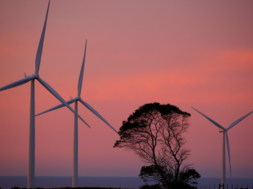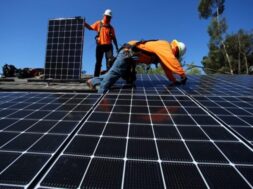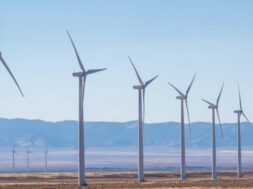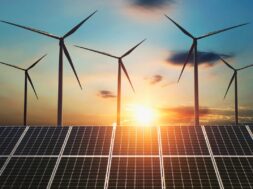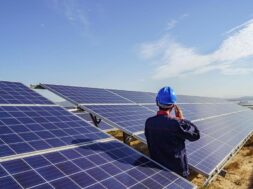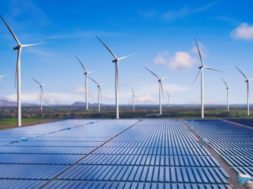
Africa’s post-COVID-19 economic recovery plan: Integrate climate change action in planning, says report – EQ Mag Pro
Africa is projected to suffer a fall of 2-8% in GDP in post-COVID-19 scenario.
African countries should integrate climate change action as a central objective in the planning of post-novel coronavirus disease (COVID-19) economic recovery plans, according to a new report.
The report, titled Driving a Green and Sustainable post-COVID-19 Recovery in Africa, drew from three case studies conducted in East, West and North Africa.
It was published by Kenyan think tank Power Shift Africa, Nigerian environmental non-profit Society for Planet and Prosperity and Morocco-based advocacy and business development firm Positive Agenda Advisory, September 14, 2021.
African countries are exposed to the effects of climate change, including flooding, sea-level rise, forced migrations due to climate disasters, drought and locust invasion.
COVID-19 had exacerbated these climate vulnerabilities by reducing the resources available to adapt, the report said.
Economies in Africa were growing at about three per cent of the Gross Domestic Product (GDP) before COVID-19, but is now projected to fall by 2-8 per cent in GDP.
A narrow focus on an economic recovery that ignores climate change and the broader objectives of sustainable development will cost Africa more economic pain in the long run, the report warned.
The concept of green and resilient recovery is highly relevant to scale up investment to address climate change and United Nations-mandated Sustainable Development Goals in Africa. It looks to innovative and cost-effective actions that can conserve natural resources, said the report.
Focusing on long-term socio-economic benefits for the most vulnerable by using smart public spending and investments in energy efficiency, harnessing solar power, planting and growing trees, will not only reduce emissions but will also enhance economic growth, inclusiveness and resilience.
Many African countries have committed to transition to green energy within a relatively short time frame. Clean energy and agriculture are, for example, prioritised in over 70 per cent of African Nationally Determined Contributions (NDC). This ambition needs to be an integral part of setting the economic development priorities of the continent.
African countries have been incorporating climate action in their evolving post-COVID-19 recovery plans. Nigeria’s post-COVID-19 recovery plan seeks to install home solar systems and mini-grids for five million households not currently connected to the national grid.
If successful, the project will provide 250,000 additional jobs to help cushion the unprecedented rate of unemployment resulting from the COVID-19 lockdown.
In Ghana, the government has undertaken a National Adaptation Planning (NAP) process as part of its post-COVID-19 recovery plan to mitigate the negative impacts of climate change by developing projected rainfall and temperature change scenarios for the next 60 years.
But climate change is taken into consideration only marginally in the recovery efforts of many African countries. The impacts of climate change, if unchecked, could erode Africa’s recovery plans, warned the report.
Representatives of the 54 African governments reaffirmed their commitment to enhance environmental resilience and to protect and sustainably use natural resources for the region’s development in a ministerial statement issued at the closing of the eighth special session of the African Ministerial Conference on the Environment (AMCEN).
The recent report recommended some top policy priorities for green, resilient and sustainable post-COVID-19 recovery in Africa:
- Linking clean energy with post-COVID-19 recovery efforts
- Climate-smart agriculture
- Green transportation
- Quality data to drive the digital economy
- Social protection and tackling inequality
- Green industrial policy
- Environmental tax: Setting up an environmental price like the carbon price to reflect the social cost of carbon dioxide emissions is likely to stimulate investment in green industrial policies.
- South Africa became the first country in Africa to introduce a carbon tax.
- Tourism, industry and trade commodities will require significant work to regain their pre-COVID-19 momentum.
Implementing a green and sustainable post-Covid-19 recovery requires a special focus to ensure the integration of climate and green projects and initiatives into the planning and budgeting processes. According to the report, strong political action is needed to address these challenges.

